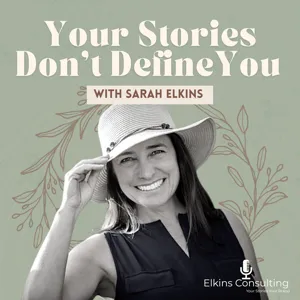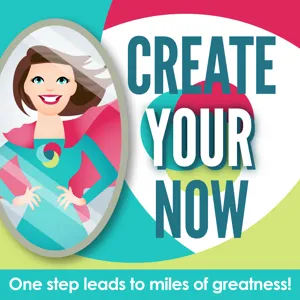Podcast Summary
Comparing Yourself to Others: The Cost of Social Comparison: Avoiding constant comparisons to others can help prevent negative emotions and promote personal growth. Focus on your own journey and celebrate your achievements.
Constantly comparing yourself to others can be emotionally damaging. While it's a natural human instinct, especially during adolescence, the costs of social comparison can include feelings of sadness, insecurity, and even quitting. As social animals, we seek valuable information from social comparisons, but it's essential to be aware of the potential negative effects. Instead of focusing on others, try to focus on your own growth and progress. Remember, everyone has unique strengths and weaknesses, and comparing yourself to someone else's journey may not provide accurate or helpful information. Instead, focus on your own goals and progress, and celebrate your achievements, no matter how small they may seem in comparison to others.
Comparing ourselves to others can lead to negative emotions: Focus on extracting positive value from comparison without letting it negatively motivate us, and remember everyone has unique strengths.
While comparison can provide valuable information and inspiration, it can also lead to negative emotions and a sense of inadequacy. With the rise of social media, it's easier than ever to compare ourselves to others, leading to upward social comparison and a feeling of falling short. However, as the speaker mentioned, we can also experience downward spiral effects when we compare ourselves to those we perceive as better than us. To aspire without comparison's potential detriment, it's essential to focus on extracting the positive information value from comparison without letting it negatively motivate us. Additionally, the speaker speculates that technology and the infinite pond effect may contribute to historically high rates of anxiety and depression by making it difficult for individuals to feel like they are the big fish in a small pond. Ultimately, it's crucial to remember that everyone has unique strengths and contributions to offer the world.
Understanding the Impact of Comparison: Be aware of when you compare yourself to others, remember everyone's circumstances are unique, learn from comparisons, and focus on personal growth.
While comparing ourselves to others can be a natural human tendency, it's important to be aware of when we're doing it and how it's affecting us. Comparison can be demotivating or it can be a source of inspiration, depending on how we approach it. According to the speaker, having self-awareness and noticing when we're making comparisons is the first step in managing this social behavior. It's also important to remember that everyone's circumstances and experiences are unique, so rather than focusing on what others have that we don't, we can try to learn from them and extract useful information. The speaker also suggests that our early experiences and the way we're encouraged to react to social comparisons can shape our behavior in the future. Ultimately, with mindfulness and practice, we can train ourselves to make fewer comparisons and focus on our own growth and development. There is evidence that both genetics and environment play a role in our behavior, but as a psychologist, the speaker chooses to focus on the environmental factors because they are more within our control.
Impact of Social Comparisons on Self-Perception and Behavior: Social comparisons can temporarily boost self-esteem but also lead to feelings of inadequacy or looking down on others. Overestimating one's socioeconomic status can lead to happiness but poorer academic performance. Individual priorities determine if social comparisons make us feel better or get better.
Social comparisons, whether upward or downward, can significantly impact our self-perception and behavior. While upward comparisons can boost self-esteem temporarily, they can also lead to feelings of inadequacy and discouragement. Downward comparisons, on the other hand, can make us feel better about ourselves but at the cost of looking down on others. The speaker shared her personal experience of growing up with a father who constantly compared her to her cousins, but her mother's positive approach to meeting people and not comparing herself influenced her. The speaker also mentioned research suggesting that overestimating one's socioeconomic status can lead to happiness but poorer academic performance. However, there are also cases where upward comparisons can have positive effects, such as in the example of women in low-income economies who gained inspiration from seeing better lifestyles on TV. Ultimately, the decision between feeling better or getting better through social comparisons depends on individual priorities.
Understanding the power of social comparison: Social comparison can inspire or demotivate, depending on context. The Sabito effect shows how it can lead to economic empowerment. However, interpretation and reaction are influenced by social norms and reliability of information.
Social comparison can be both inspiring and demotivating, depending on how it's presented and received. The Sabito effect, a concept from Mexican television production, shows how social comparison can lead to economic empowerment and inspiration when confidence is maintained or even elevated. However, the way we interpret and react to social comparison data is influenced by how others around us interpret it and the social norms we follow. In the context of reading, such as biographies or memoirs, we may be swept up in the narrative and believe the causal statements made, but it's essential to consider the reliability and validity of the information presented. Confirmation bias and faulty causal reasoning can lead us to accept information without questioning its accuracy. Ultimately, being aware of these biases and considering multiple perspectives can help us make informed decisions and avoid being influenced negatively by social comparison.
Understanding the complexity of causality in life stories: Causality in life stories and complex issues is rarely straightforward. It's essential to consider multiple factors and acknowledge the role of unknowns.
Causality in life stories, or any complex issue, is rarely straightforward. The author of Freakonomics emphasizes this point, drawing from his experience writing about his parents' conversion to Catholicism. He initially believed there was one definitive answer to why they converted, but he soon realized that life outcomes are multifactorial and often influenced by a combination of known and unknown factors. This concept, known as correlation without causation, is important to understand when interpreting data or biographical information. For instance, it's essential to acknowledge that rain doesn't cause people to carry umbrellas; rather, they carry umbrellas to protect themselves from the rain. Similarly, when examining patterns like weight gain and dieting, it's crucial to consider reverse causality and other potential factors. In summary, it's important to approach life stories and complex issues with an understanding that causality is not always clear-cut and that acknowledging the unknowns is just as essential as the knowns.
The Narrative Fallacy: Our Brain's Tendency to Create Compelling Stories: Our brains create narratives based on limited information, focusing on intentions and talent over chance. Understanding this tendency can help us be more mindful of biases and make informed decisions.
Our brains are wired to make causal connections, even when they may not exist or be oversimplified. This can lead to the narrative fallacy, where we create compelling stories based on limited information, focusing on simple, concrete events and assigning greater importance to intentions and talent than chance. This overdeveloped causal machinery can lead us to overlook the importance of decisions not made and the role of uncertainty in our lives. Nobel Laureate Economist and Psychologist, Daniel Kahneman, has explored this concept extensively, highlighting the human tendency to create narratives and oversimplify complex situations. Understanding this tendency can help us be more mindful of our biases and make more informed decisions.
The importance of critical thinking and considering multiple perspectives: During uncertain times, avoid oversimplifying complex situations and embrace intellectual humility, considering multiple perspectives. Money's impact on electoral outcomes is often overestimated, focusing on candidate attractiveness is key.
Our desire for a simple and coherent narrative, coupled with the need to persuade others, often leads us to oversimplify complex situations. This is particularly evident during times of uncertainty, such as the pandemic, when there are numerous threads of uncertainty and multiple factors at play. The speaker emphasizes the importance of intellectual humility and considering multiple perspectives. He also shares an example from political campaigns, where the assumption that more money leads to a better chance of winning is often oversimplified. The actual effect of money on electoral outcomes is relatively weak, and it's the attractiveness of the candidate that drives the accumulation of funds. Overall, the speaker encourages critical thinking and complexity in understanding the world around us.
Money doesn't guarantee election wins: Michael Bloomberg's $1 billion campaign only earned him votes in American Samoa, debunking the myth that money buys elections. Media, particularly TV, can empower women, but attitude changes don't always lead to behavioral changes.
Money doesn't guarantee election wins, as evidenced by Michael Bloomberg's $1 billion presidential campaign that only earned him the votes of the people in American Samoa. This debunks the common narrative fallacy that money buys elections. Another key point discussed was the impact of media, specifically television, on women's empowerment. A study on cable TV in rural India showed improvements in women's status, while a Peruvian telenovela called "Simplimente Maria" increased interest in sewing and literacy. Despite these findings, it's important to note that attitude changes don't necessarily translate to behavioral changes.


![Caffeine Cast: How To Deal With The VOICES In Your Head [Business, mindset, entrepreneur, disruptors]](https://www.podcastworld.io/podcast-images/disruptors-kt0uj0xy.webp)







